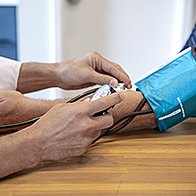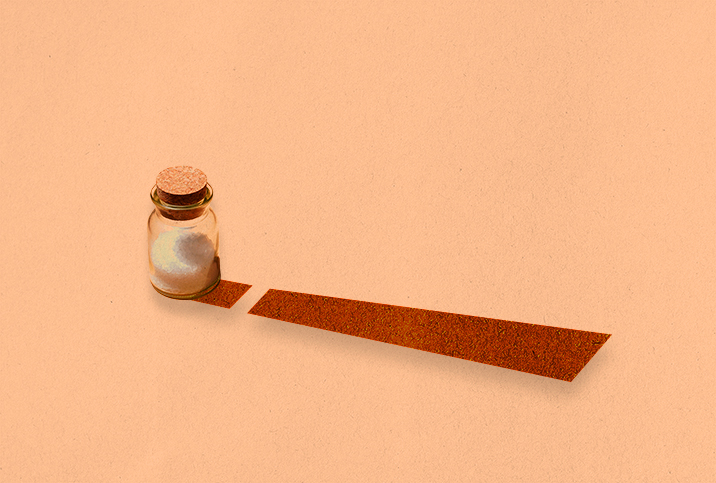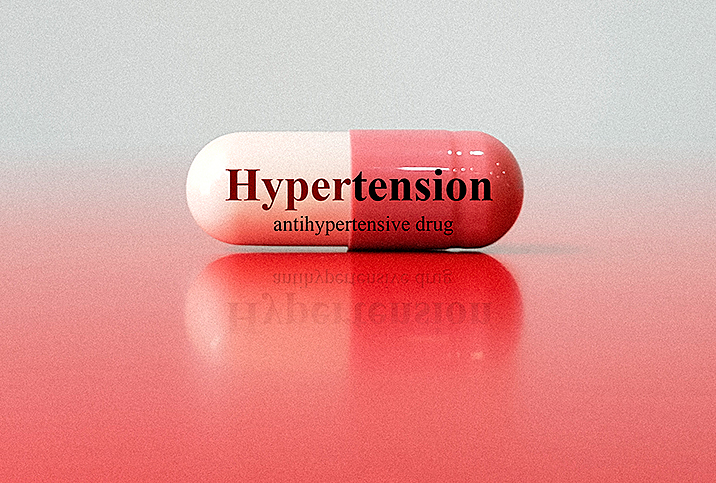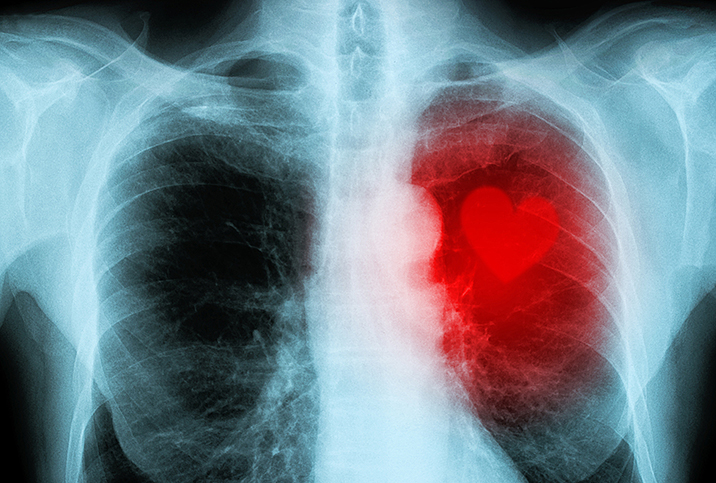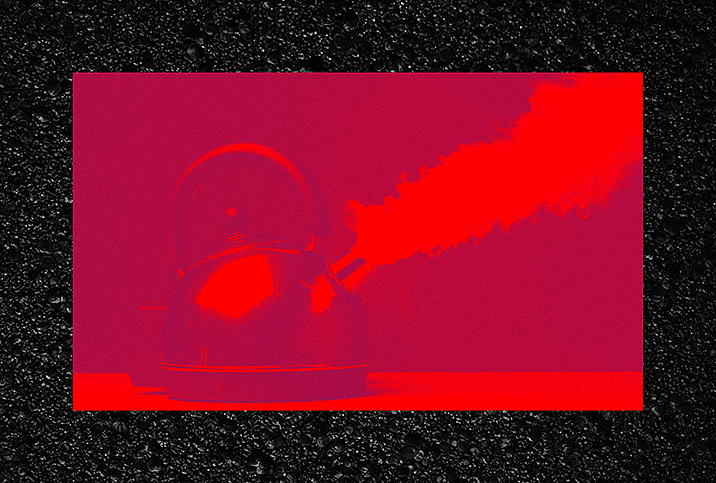High Blood Pressure Can Lead to Serious Health Issues
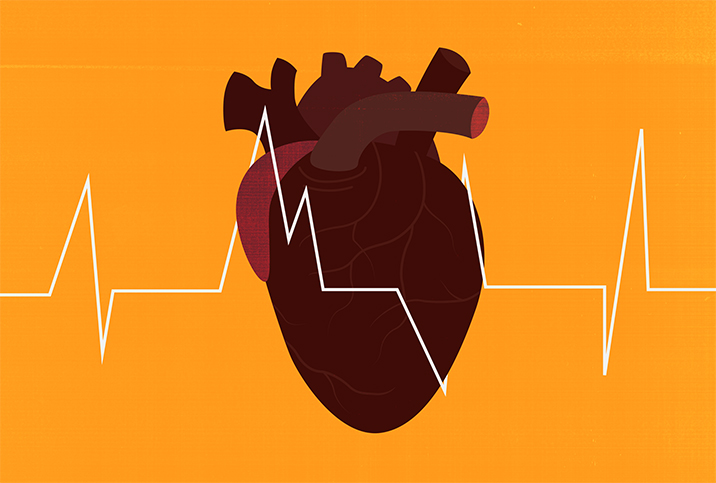
About half of adults in the United States suffer from hypertension—better known as high blood pressure—but only about one-fourth of them actually have it under control, according to the American Heart Association (AHA).
Uncontrolled high blood pressure is associated with a high risk of stroke, heart failure, heart attack, kidney disease, kidney failure and other serious conditions.
Not me, I feel great
Many people don't notice or take action for their high blood pressure because they don't experience symptoms.
"It really is called a 'silent killer' since symptoms often might not show up until it's too late," said Brian Ong, D.O., a family doctor in New Castle, Pennsylvania. "Keeping blood pressure under control in the long run ultimately would lower your risk of these complications."
According to standards set by the AHA, normal blood pressure is less than 120/80 mmHg. The first number is systolic and the second is diastolic. Stage 2 hypertension is 140 mmHg or greater for systolic and 90 mmHg or greater for diastolic.
High blood pressure tends to run in families and is more common in people who are obese, smoke or abuse alcohol.
Ong said controlling high blood pressure is analogous to taking your car in for routine maintenance.
"Things can wear down over time even though the car feels like it's running fine," he said. "Ultimately, though, the discussion is about reducing their overall health risks, which is a challenging situation since patients often do not see anything 'wrong' in the present."
Ong explains to his patients the risks and likelihood of adverse events happening if their blood pressure isn't kept in check.
"High blood pressure damages the inner linings of the arteries, making them less elastic, which leads to less blood flow passing through them," Ong said. "Combine this with the buildup of fatty deposits narrowing the arteries—a disease known as atherosclerosis—and the risk of ruptures and clots increases."
Medications and potential side effects
"Multiple types of blood pressure medications are used and they act in a variety of ways," Ong said. "Blood tests and discussing your health conditions with your doctor can help determine which medications are best for you."
If a patient has blood pressure that ranges from 130 to 139 systolic or 80 to 89 diastolic—which is categorized by the AHA as Stage 1 hypertension—Paul Pavlov, M.D., a family doctor in Biloxi, Mississippi, first tries to manage it with diet and exercise. Losing weight and decreasing salt intake can help.
However, if their blood pressure is extremely high, he'll generally treat the condition with medications immediately. Pavlov usually starts patients on an ACE (angiotensin-converting-enzyme) inhibitor or an ARB (angiotensin II receptor blocker), which manipulate hormones that come from the kidneys and help regulate blood pressure.
"After that, you use diuretics, which are fluid pills, but diuretics also work by being peripheral vasodilators—they open up your blood vessels in your fingers, toes and legs," Pavlov said. "Some blood pressure medicines, like calcium channel blockers, may cause swelling because they work by also doing peripheral vasodilation and some may experience fluid retention.
"Low potassium and low magnesium are potential side effects of diuretics, and ACE inhibitors may cause a metallic taste in the mouth and chronic dry cough," he added.
Patients usually stay on high blood pressure medications for life. In addition, high blood pressure tends to run in families and is more common in people who are obese, smoke or abuse alcohol. Blood pressure also increases as we age.
"Your blood vessels, which are like limber hoses, become more like stiff pipes as we get older," Pavlov explained.
Prevention is best
"Preventive medicine is best," said Kayla Holland, PA-C, a certified physician assistant in Birmingham, Alabama. "It is important to take your blood pressure medications daily and record your home blood pressure readings with a cuff at home. It's best to check your blood pressure daily when you first wake up and keep a log to show your doctor. Uncontrolled hypertension can be dangerous, but it is also preventable."
Holland said a low-salt diet and exercise are two of the best things you can do to help control hypertension.
"We live in a culture where food is often prepared with a lot of salt, so we have to be mindful of this, particularly when eating at restaurants," Holland explained.
A societal problem
Amin Al-Ahmad, M.D., a cardiac electrophysiologist at the Texas Cardiac Arrhythmia Institute in Austin, Texas, said early treatment of high blood pressure is critical.
"If we as a society did a better job of that, we could prevent so many downstream problems related to high blood pressure," Al-Ahmad said, adding that diseases of the eye and the brain could be related to high blood pressure, especially among people who go untreated.
The problem is people failing to take their high blood pressure seriously and an issue of people being undertreated altogether, some of which can be explained by the disparities in access to healthcare, access to proper nutrition and access to education amongst different populations.
"There's a lot of reasons why people are undertreated," he said. "Occasionally, patients don't tolerate medications. [Some] patients can't afford medications and don't take them. There's a lot we can do to help with those types of things, but it's a project on many levels."







